Last updated on February 11th, 2025
Featured image: The Seville Cathedral during Semana Santa in Spain | Photo by Manual Focus 94 on Shutterstock
Semana Santa in Spain is unforgettable
by Carolyn Ray
Celebrated since the 16th century, Holy Week (or Semana Santa) in Seville is one of the world’s most well-known festivals. As a frequent traveller to Spain, I’ve wanted to witness this seven-day festival and see the processions for years. Even if you’re not religious, Semana Santa in Spain is awe-inspiring because it shows the importance of community and the power of faith.
I arrive in Spain on Good Friday, or Viernes Santo, which is a solemn day during Holy Week. Every day features different activities so it’s wise to check the schedules for the city you are going to. In Spain, every church has a brotherhood that is responsible for organizing, financing and delivering Semana Santa, along with countless other social, cultural, religious and traditional celebration.
Each brotherhood has its own ‘pasos’, which show Jesus and Mary in different scenes from the Passion. They are all beautifully decorated and incredibly heavy, weighing up to a ton. Jesus is shown in gold, and the Virgin Mary, usually in tears, is surrounded by silver and white roses. As part of the procession, priests and altar boys carry lit candles and incense. There are also musicians and hooded ‘nazarenos‘, sometimes barefoot, who walk in silence. The men carrying the heavy pasos for hours to and from the Cathedral are called ‘costaleros’. I count over 40 men underneath one of these immense structures, totally hidden except for their shoes.
Read More: Seville, Spain in the Off Season
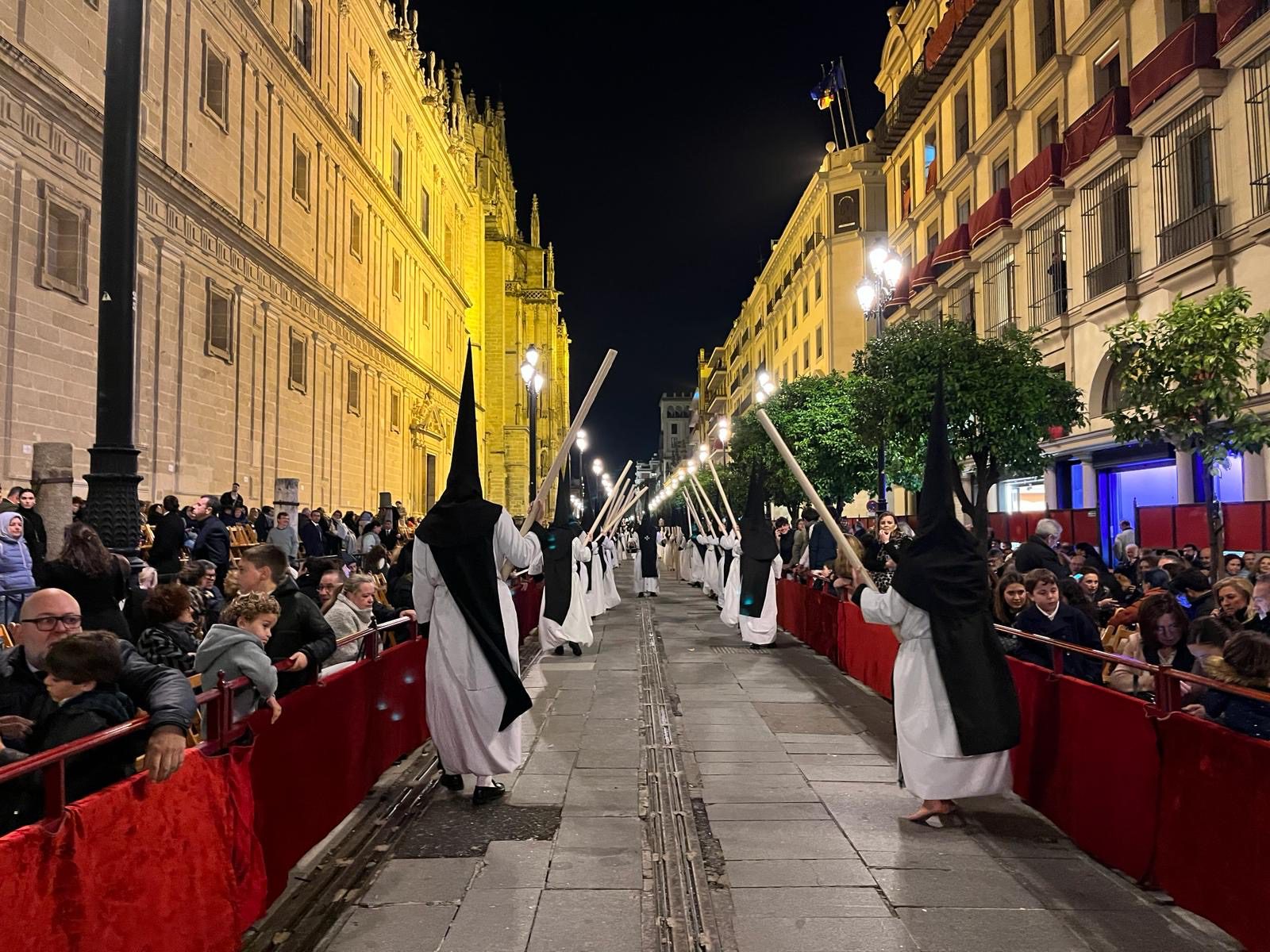
Easter in Seville
Seville is the epicentre of Easter in Spain. During Holy Week in Seville, there are an estimated 71 brotherhoods and religious guilds of penitence, the thrones or paso, carried by costaleros through the cobblestone, winding and narrow streets and around 50,000 Nazarenes, who wear hooded gowns, some with chains around their feet.
When I arrive in Seville on Friday afternoon, I am not expecting to see any processions but am immediately greeted by a large parade near the train station. I soon learn that all of the processions from Friday have been delayed to Saturday. I make my way to the cathedral, jammed along the narrow streets with hundreds of people. There are viewing stands where people are seated to watch the entire procession. Although the police have set up pathways so that people can cross the street, I am caught in the flow of the parade.
Near the Seville Cathedral, watching the processions feels like being on a movie set. The tall pointed hats of the nazarenos, the golden lights of the cathedral and the steady beat of the drums creates an otherworldly essence. What’s even more amazing is how these floats are carried through the streets for hours. Guided by ‘navigators’ on each corner, the pasos stop every few minutes to allow the men carrying them some rest. With three clicks on the metal outside, the lowered pasos is raised again, often to cheers of ‘ole’ (bravo!) and claps of gratitude and appreciation.
Things to do: Find day tours in Seville by clicking here
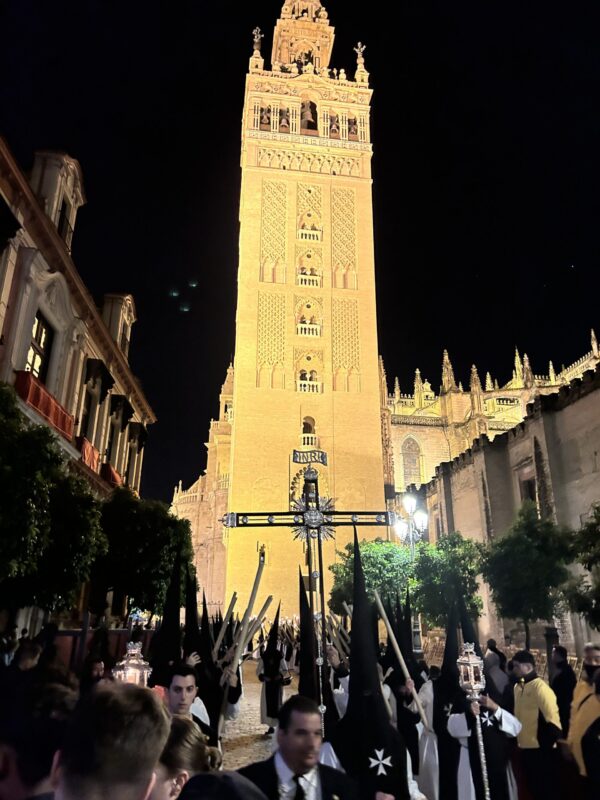
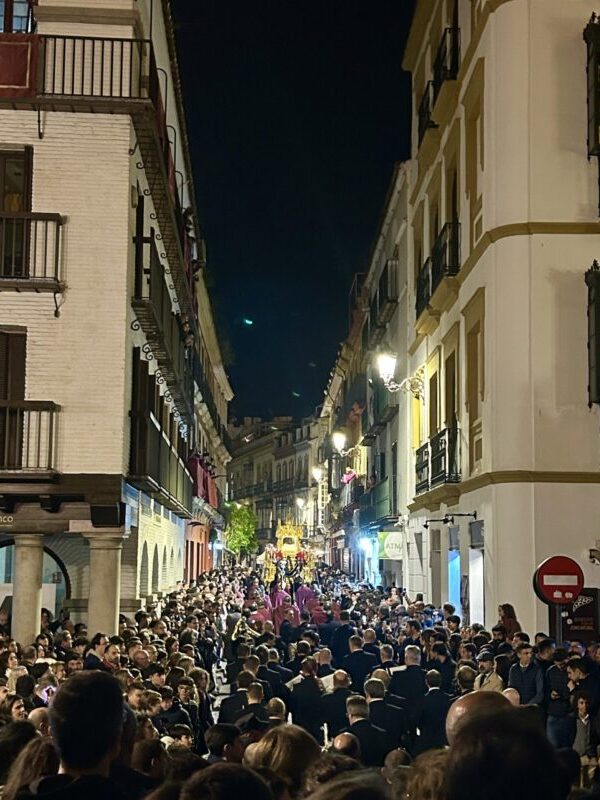
Easter in Barcelona
In Barcelona on Good Friday, I unexpectedly find myself standing on the steps of Barcelona Cathedral, just a few feet away from the Archbishop of Barcelona. Amazingly, although there are police present, there is no ‘show of force’. The police simply clear a path for the religious leaders to make a speech, as a group of us stand nearby.
Here, there are three pasos – Jesus on a cross, Mary on a throne and Mary holding Jesus, all carried on men’s shoulders through the streets of Barcelona. I watched as 10 feet away, a woman sings her heart out to Mary and Jesus which brings tears to my eyes. While I can’t understand everything being said, I am honoured to experience this moment – it is an opportunity to believe in something bigger than myself.
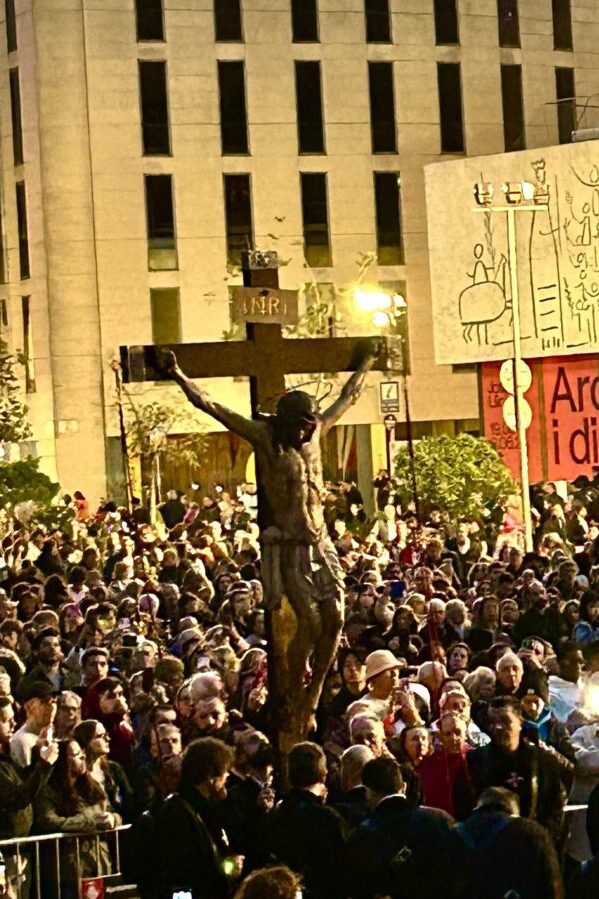
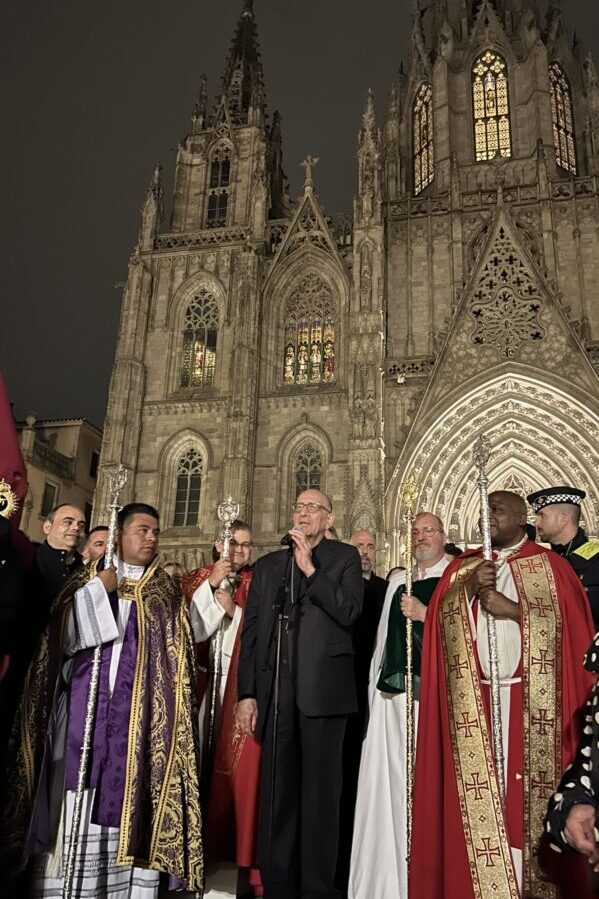
The last night of Holy Week
On Easter Sunday, the last night of Holy Week in Seville, I visit various churches to see the pasos, which are inside for public viewing. Afterwards, I walk over to Plaza de la Encarnación to watch the final two pasos return home to their neighbourhoods after being carried back from the Cathedral. Even though it is cold, overcast and late at night, people crowd the streets, in silence and reverence. Fresh flowers rain down from the rooftops, covering all of us in rose petals. In that moment, I feel inextricably connected to the people around me, witnessing their emotions and pride as the pasos return home until next year’s festival.
Easter is always about rejuvenation, but in Seville it’s even more profound and powerful. This is the gift of travel — to connect us, build understanding between cultures and cultivate gratitude for experiences like this. Gracias, Seville, and Felices Pascuas.
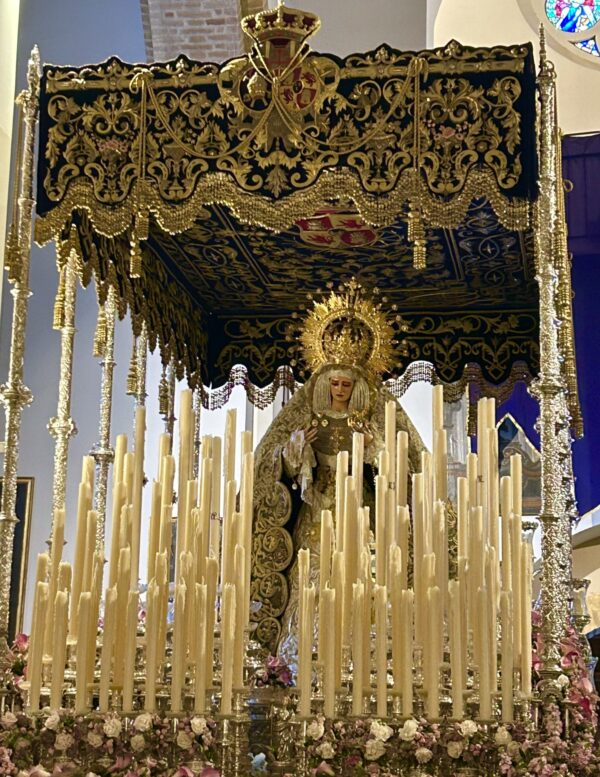
Mary in tears, surrounded by silver and white flowers, in Seville / Photo by Carolyn Ray
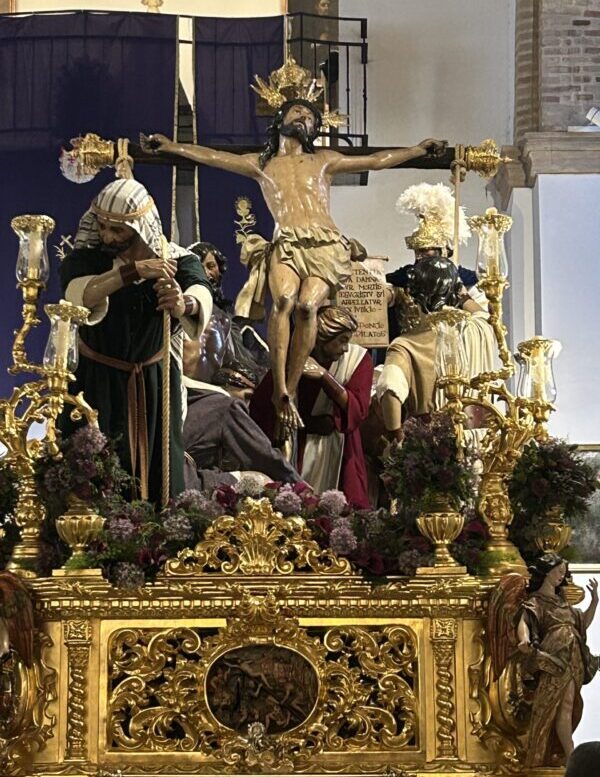
Jesus on the cross, in a scene from the Passion, in Seville / Photo by Carolyn Ray
If you go to Seville
There are many tourists during Holy Week in Seville, so if you go, book your hotel well in advance and expect to pay higher rates. While not all the bars and restaurants are closed, you will want to make reservations. Find a hotel here.
Join the Expat Sevilla group on Facebook (it’s in English) and download the El Penitente app for timetables (it is in Spanish). You can also rent balconies for viewing; I noticed some of 60 euros including tapas. Television station 101 Sevilla has live broadcasts of the procession.
Safety tips for Seville
When the streets are crowded, make sure you keep your cross-body bag in front of you and consider using Wise for ‘tap and pay’ rather than using actual currency. Be cautious posting your current location on social media, particularly your hotel; it’s always better to post when. you get home. Find more cybersecurity travel tips here.
How to get to Seville and Barcelona
Spain has a very good train network. I took the OUIGO high-speed train from Barcelona to Madrid (about 2.5 hours), and then a Renfe train to Seville, which was less than three hours. (Note: the Wifi doesn’t work well on either, so make other plans!)
Believe it or not, it was cheaper to fly into London than Madrid from Toronto and to take the train from London to Seville. From there, I took the Eurostar train from London to Lille and then went through to Barcelona. The train was easy and pleasant, giving me time to catch up on sleep and some writing. My route was London St. Pancreas to Lille, Lille to Lyon and then Lyon to Barcelona. Book your train trip here on Trainline.
Where to stay in Seville and Barcelona
There are so many beautiful hotels in both Seville and Barcelona but I prefer bed and breakfasts and smaller boutique hotels. In my many trips to Seville, I’ve never found a neighbourhood I didn’t enjoy, including Santa Clarita and Santa Cruz, which are most often visited by tourists. Triana, just across the river, is also becoming more popular. In Barcelona, I usually stay in the Gothic Quarter but have also spent a few weeks in Saint Antoni and nearby Sitges and Girona which I’ve found can be cheaper than staying in Barcelona. To look for hotels recommended by women in Spain, click here or check Booking.com.

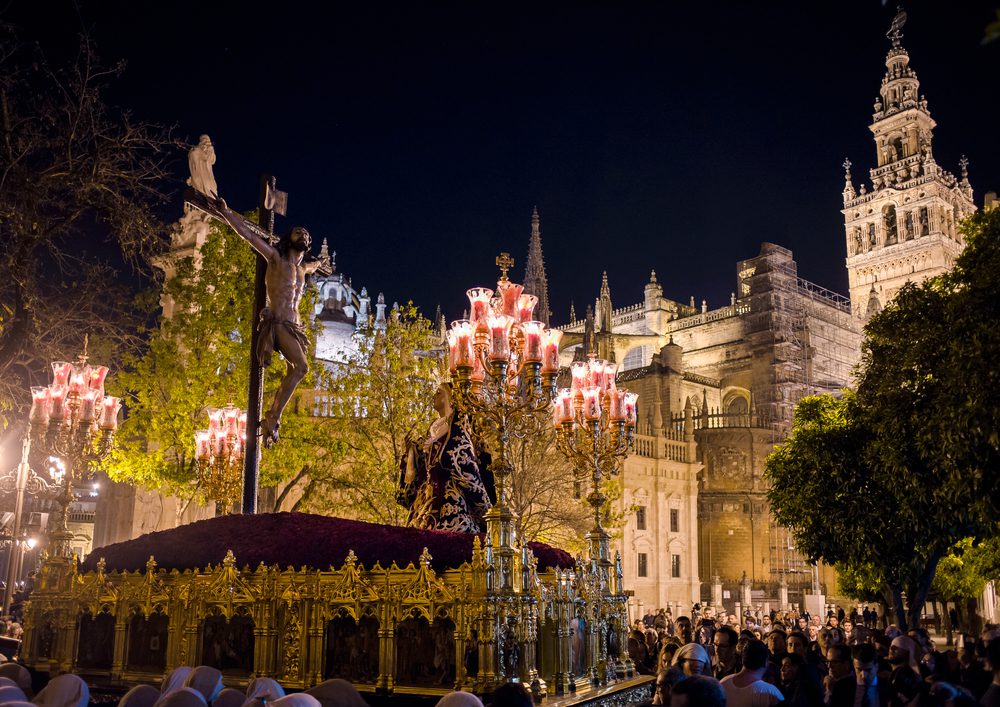



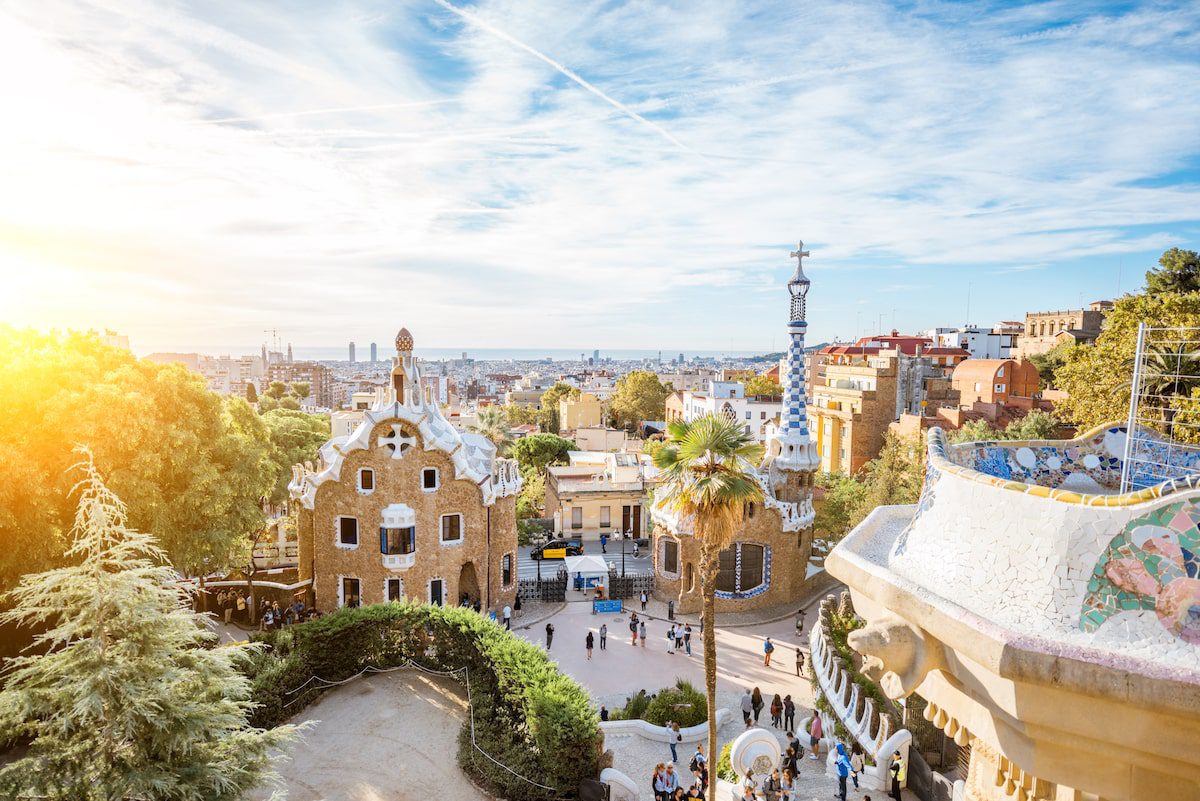
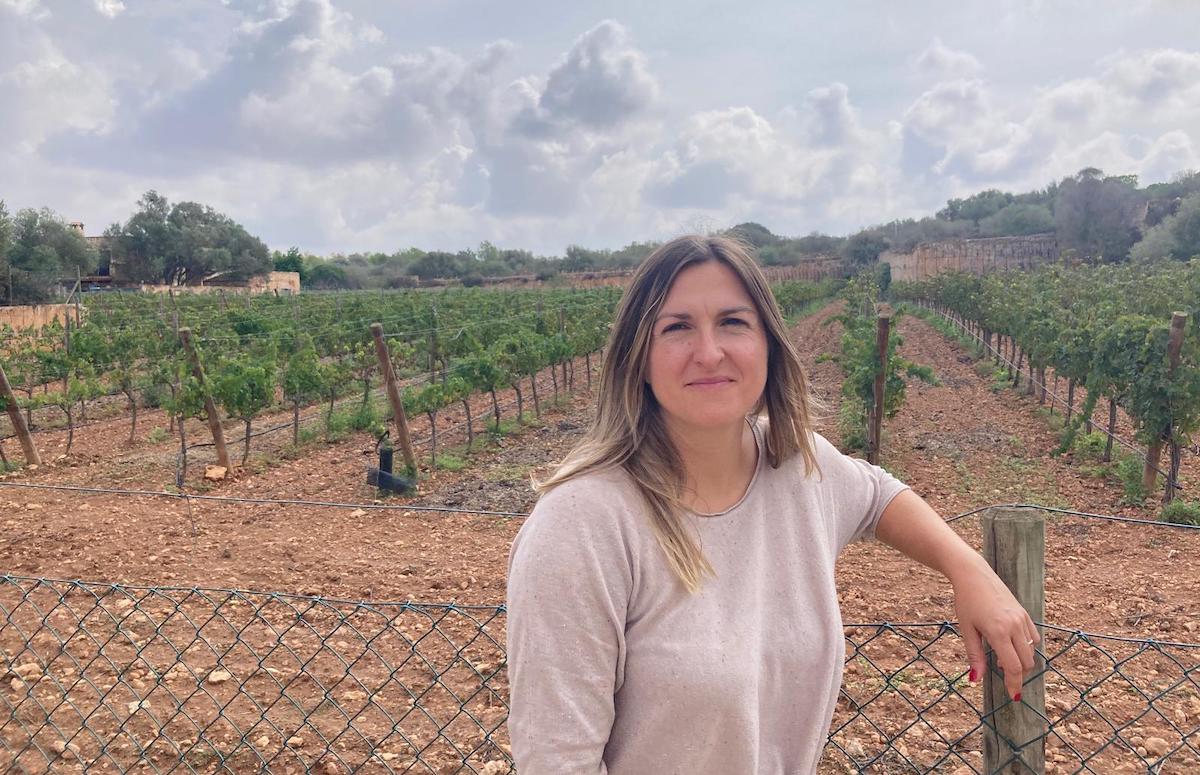
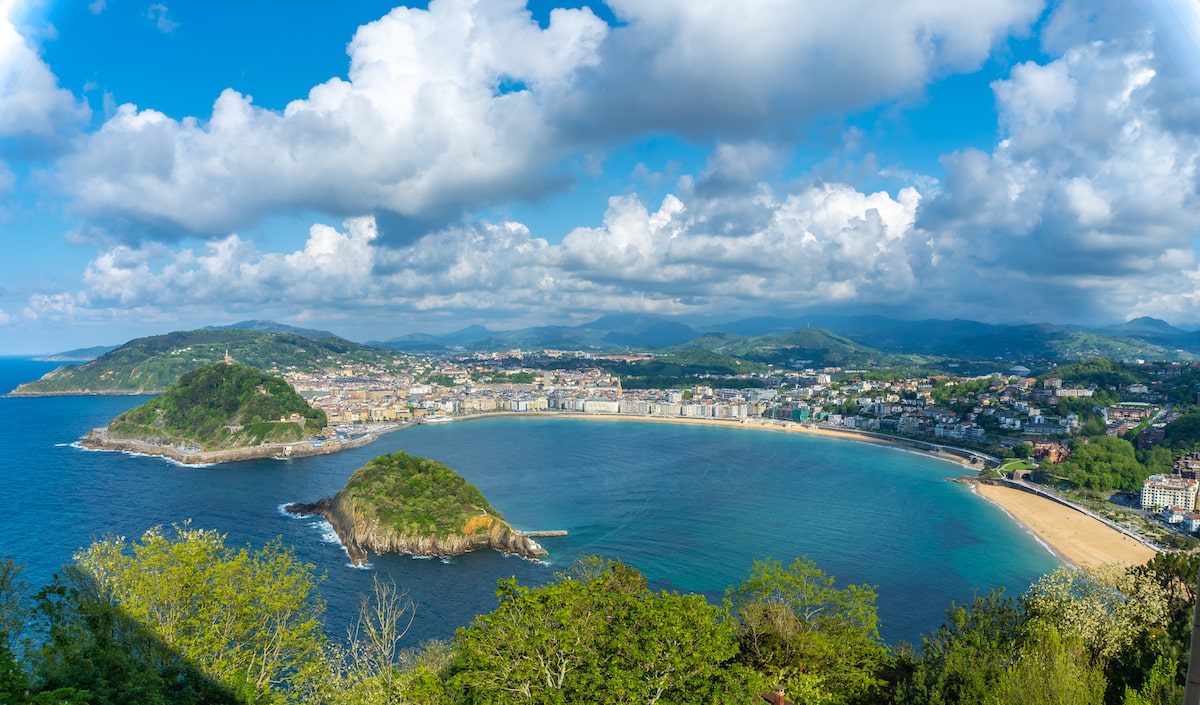
0 Comments
We always strive to use real photos from our own adventures, provided by the guest writer or from our personal travels. However, in some cases, due to photo quality, we must use stock photography. If you have any questions about the photography please let us know.
Disclaimer: We are so happy that you are checking out this page right now! We only recommend things that are suggested by our community, or through our own experience, that we believe will be helpful and practical for you. Some of our pages contain links, which means we’re part of an affiliate program for the product being mentioned. Should you decide to purchase a product using a link from on our site, JourneyWoman may earn a small commission from the retailer, which helps us maintain our beautiful website. JourneyWoman is an Amazon Associate and earns from qualifying purchases. Thank you!
We want to hear what you think about this article, and we welcome any updates or changes to improve it. You can comment below, or send an email to us at [email protected].